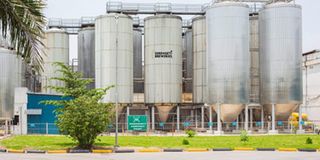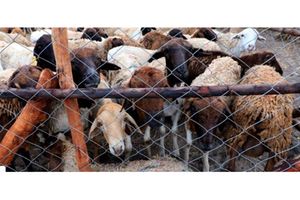Prime
Parliament’s pledge on excise duty framework for beer industry

A Serengeti Breweries Limited production facility. PHOTO | FILE
What you need to know:
- Tanzania’s Parliament has pledged to consult widely and advise the government on a proper exercise duty framework that, if implemented, would foster growth of the alcoholic beverage industry
Dar es Salaam. Parliament on Sunday pledged to consult widely and advise the government on a proper exercise duty framework that, if implemented, would foster growth of the alcoholic beverage industry.
The promise was made in Dar es Salaam by members of Parliament’s Industry, Trade, Agriculture and Livestock Committee when they toured the Serengeti Breweries Limited (SBL) plant.
During the tour, the committee, led by its chairman, Mr Deodatus Mwanyika (Njombe Urban-CCM), was informed that Tanzania’s current three-tier excise duty framework for the beer sub-sector could have an adverse impact on the growth of the sector.
Currently, an excise duty rate of Sh918 is levied on every litre of beer made wholly or partially from imported malt. The country also charges an excise duty rate of Sh620 per litre of beer made with 100 percent locally-grown barley or malt.
For non-malted beer made with 100 percent local raw materials, an excise duty rate of Sh520 per litre applies.
With no serious malting facility in the country for a long time, beer manufacturers are mostly paying the Sh918/litre rate.
In an effort to protect local industries, SBL believes that should any player in the market develop its own malting facility, which would need a substantial investment of at least $40 million, it would have a devastating impact and create a lopsided playing ground for manufacturers.
This, SBL says, would mean that brewers that do not have a malting plant and which will continue to depend on imported raw materials, will be paying 32 percent more in excise duty than the one with such a facility.
“We will consult with the committee and the ministers for Agriculture and Livestock as well as Industry and Trade to ensure our recommendations align with the interests of both the nation and the industry,” said Mr Mwanyika.
He added that Sunday’s visit aimed at understanding and addressing the challenges faced by key stakeholders contributing to the nation’s revenue.
“As a watchdog committee, it’s essential that we listen to these voices of key stakeholders, including that of brewers like SBL, whose operations significantly impact our economy.”
Mr Mwanyika added that the broader approach seeks to support revenue growth, fair competition, and a sustainable business environment that benefits all stakeholders. “As such, we’ve agreed that discussions around beer industry regulations should involve both SBL and TBL (Tanzania Breweries Public Limited Company) jointly, fostering collaborative solutions that secure our nation’s economic future,’ he said.
Briefing the committee, SBL corporate relations director John Wanyancha said the was proposing an excise duty rate of Sh680 per litre for beer made with at least 75 percent local content, arguing that the current structure could lead to price increases and favour certain players unfairly.
“The government has set a tax rate of Sh620 per litre for beer made from locally produced malt,” Mr Wanyancha said. “However, Tanzania currently lacks local malting facilities, so most brewers have no choice but to import malt.”
SBL managing director Obinna Anyalebechi echoed these sentiments, saying an “unpredictable tax environment” that favours one player can discourage industry growth and government revenue. He pointed to the current tax concession as an example of the potential for discriminatory practices.
SBL and East African Spirits Limited will be paying Sh918 per litre due to reliance on imported malt. “Our current production volumes do not justify the substantial investment in a local malting facility,” Mr Anyalebechi said, calling for an intermediate tax rate of Sh680 per litre for beer with 75 percent local content.
SBL also warned that excessive taxation could lead to unintended consequences, including higher consumer prices and an increase in illicit beer production.
Also present at the event was Industry and Trade deputy minister Exaud Kigahe, who reiterated the government’s support for industries in Tanzania.




